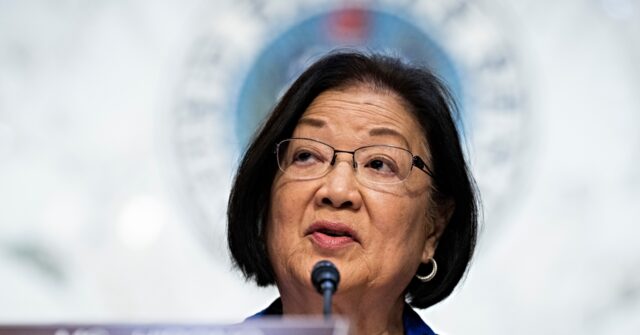During a recent Senate Judiciary Committee hearing, Senator Mazie Hirono (D-HI) expressed her views on the implications of Supreme Court rulings regarding gun ownership, specifically referencing the landmark Heller decision of 2008. Hirono’s opening remarks highlighted the distressing prevalence of firearms in the United States, insisting that the nation is overwhelmed by guns—a sentiment she reiterated multiple times throughout her address. She characterized the Heller decision as a significant turning point, arguing that it shifted the interpretation of the Second Amendment to allow for individual gun ownership, a concept she believes was not present before this ruling. This position underscores Hirono’s ongoing advocacy for stricter gun control measures amidst what she perceives as escalating gun violence in the country.
In her discussion, Hirono also acknowledged that the Heller ruling did not completely remove the potential for gun regulation. By recognizing the decision’s allowance for some level of regulation, she aimed to frame her party’s push for gun control in a way that aligns with certain aspects of the legal precedent established by the Supreme Court. However, her approach also criticized subsequent developments in gun law interpretation, particularly the Bruen decision of 2022. Hirono expressed disbelief at the contemporary emphasis on historical perspectives from the Founding Fathers when assessing modern gun laws, labeling the requirement to look back to the 18th century as both unreasonable and absurd.
The urgency behind the Senate Judiciary Hearing was to provide Democratic lawmakers and advocates one last avenue to advance specific gun control initiatives, notably a ban on bump stocks and more stringent legislation concerning Glock switches. These proposals reflect a broader Democratic agenda to tighten regulations around firearms as a response to pervasive gun violence. Hirono’s remarks served to reinforce the narrative that the legal framework governing firearm ownership and use in the United States must evolve to address the realities of contemporary society, which she argues is saturated with guns.
During the hearing, Hirono’s rhetoric aimed to resonate with public sentiments regarding safety and gun violence. By leveraging statistics or testimonies related to gun-related incidents, the intention was likely to sway public opinion against lax gun laws and emphasize the necessity of regulatory measures that prioritize community safety. Her emphasis on the term “awash in guns” was a deliberate strategy to evoke imagery of widespread gun availability and the associated risks to public safety, suggesting that inaction in the face of such a crisis could have dire consequences.
Furthermore, Hirono’s arguments reflect a broader ideological divide in the U.S. regarding gun rights and gun control. While her party typically advocates for stricter regulations to combat gun violence, opponents often argue that such measures infringe on constitutional rights and the Second Amendment. This ongoing debate encapsulates a fundamental cultural and political clash in American society, where notions of personal freedom and collective safety frequently collide. As the hearing unfolded, it became clear that the gulf between these perspectives remains vast, shaping the legislative agendas of both parties.
In summary, Senator Mazie Hirono’s remarks during the Senate Judiciary Committee hearing underscored her concerns about the implications of Supreme Court rulings on gun ownership in America. By emphasizing the historical context of the Second Amendment and advocating for specific gun control measures, Hirono positioned herself and her party within a larger narrative of seeking to curb gun violence in the face of widespread firearm availability. The continued polarization of gun rights versus regulations reflects ongoing tensions in American political discourse, as both sides seek to influence the future of gun laws in the country.

